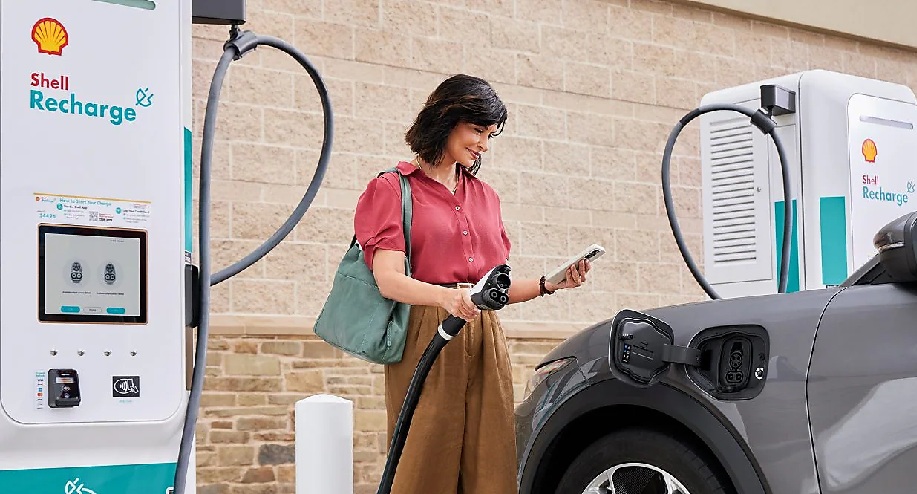Shell Deutschland is the first charge point operator (CPO) to launch an innovative pilot project for dynamic electricity pricing at rapid charging stations, taking into account the development of the electricity exchange price (spot price).
The aim is to provide electric vehicle (EV) drivers with a financial incentive to charge their cars when electricity is particularly cheap.
“Those who charge during periods of high renewable energy supply help to stabilise the electricity grid, and we can pass on any price advantages to customers during those times,” says Florian Glattes, General Manager Shell Mobility DACH.
What Does Dynamic Pricing Mean?
With dynamic pricing for ultra-rapid charging, Shell will increasingly align pricing at its more than 1,600 charge points with fluctuations in the electricity exchange price.
This so-called spot price is determined daily on the electricity exchange based on supply and demand forecasts and can vary throughout the day.
For instance, around midday, high solar generation may lead to a surplus of electricity, resulting in lower prices.
Conversely, prices rise when demand exceeds supply—such as in the early evening when households consume more electricity.
How the New Model Works
For users of the Shell Recharge app and Recharge card, the new pricing model offers the opportunity to benefit from lower prices during times of high supply and low demand.
Conversely, prices may increase during periods of low supply.
The exact prices—which also include components such as grid fees, electricity tax, operational and infrastructure costs—may vary depending on the exchange price and other factors. At the start of the pilot on 30 June, the maximum price fluctuation during the day was 6 cents per kilowatt hour (kWh).
The dynamic pricing model applies to private customers at all Shell Recharge charge points.
Glattes states: “The pilot project is intended to provide insights into how attractive this model is for customers and what contribution it can make to grid stability and the integration of renewable energy.”
Further Savings with Shell Recharge e-Deal
In addition to the dynamic pricing model and the Shell ClubSmart card, the company is also breaking new ground in e-mobility with the Shell Recharge e-Deal.
With this value tariff, customers receive a 25% discount per kWh off the current price at Shell Recharge points in Germany for a monthly base fee of 4.99 euros, limited to a maximum of 400 kWh per month.
This means that EV drivers using the Shell Recharge app and card can currently charge from as little as 42 cents per kWh, depending on the current price.
The Shell Recharge e-Deal can be easily booked by any customer via the app.
The app also displays the current charging prices at individual Shell Recharge stations.
About Shell Recharge
Shell aims to become a net-zero emissions company by 2050. A key component of this is the development of a comprehensive charging infrastructure for EVs.
The company laid the foundations for this early on in the German market.
As early as 2017, the company acquired NewMotion, then Europe’s largest charging provider, now known as Shell Recharge Solutions.
Since 2019, Shell has been installing ultra-rapid charging points with a minimum output of 150 kW at its service stations. Last year, the network was doubled to over 1,600 ultra-rapid charging points.
The company offers electricity from 100% renewable energy sources at its Shell Recharge rapid charging stations.
READ MORE
-
6 days left: How to make EV charging stations reliable, visible and durable?
On 5 November, Data Modul will host a web seminar on HMI solutions for EV charging stations — a must-attend event for manufacturers seeking to innovate and optimise their products.
-
Rightcharge secures £1.6M to boost EV charging payments for Europe’s fleets
Public charging remains fragmented and reimbursing employees for home charging is often slow and error-prone. However, fleets using Rightcharge can reduce charging costs by up to 90%.
-
Strong demand for France’s social EV leasing with 41,500 cars already leased
To date, over 41,500 vehicles have been leased, including more than 11,360 by beneficiaries who live or work in areas where air quality is a concern.










